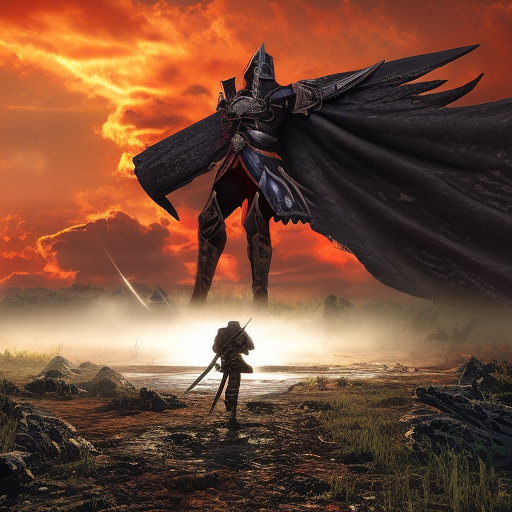Epic Poems: A Comprehensive Overview
Epic poems are long narrative poems that tell the stories of heroic figures and their adventures. These poems have been an integral part of literature for centuries, showcasing the cultural values, beliefs, and traditions of different societies. This summary provides a detailed overview of epic poems, exploring their characteristics, origins, and notable examples.
Characteristics of Epic Poems
Epic poems are characterized by several key elements. Firstly, they typically focus on the adventures and achievements of a heroic figure or a group of heroes. These heroes are often larger-than-life characters who possess extraordinary strength, courage, and intelligence. They embark on epic quests, facing numerous challenges and obstacles along the way.
Another important characteristic of epic poems is their length. These poems are usually quite long, often spanning several books or cantos. The length allows for a detailed exploration of the hero’s journey and the world in which they exist. Additionally, epic poems often employ a formal and elevated style of language, using poetic devices such as similes, metaphors, and allusions to enhance the narrative.
Epic poems also tend to incorporate supernatural elements. Gods, goddesses, and other mythical beings frequently intervene in the hero’s journey, either aiding or hindering their progress. These supernatural elements add a sense of grandeur and wonder to the narrative, further emphasizing the hero’s exceptional nature.
Origins of Epic Poems
The origins of epic poems can be traced back to ancient civilizations. One of the earliest examples of an epic poem is the Mesopotamian epic of Gilgamesh, dating back to the third millennium BCE. This epic tells the story of Gilgamesh, a legendary king who embarks on a quest for immortality. The epic of Gilgamesh set the foundation for many of the themes and conventions found in later epic poems.
Another significant origin of epic poems is ancient Greece. The Greek poet Homer is credited with composing two of the most famous epic poems in history: the Iliad and the Odyssey. The Iliad recounts the events of the Trojan War, while the Odyssey follows the adventures of Odysseus as he attempts to return home after the war. These epics are considered masterpieces of ancient Greek literature and have had a profound influence on subsequent epic poetry.
Notable Examples of Epic Poems
In addition to the Iliad and the Odyssey, there are numerous other notable examples of epic poems from different cultures and time periods. The Aeneid, written by the Roman poet Virgil, tells the story of Aeneas, a Trojan hero who travels to Italy and becomes the ancestor of the Roman people. The Aeneid is considered one of the greatest works of Latin literature.
Another well-known epic poem is the Divine Comedy by Dante Alighieri. This epic follows the journey of Dante through Hell, Purgatory, and Heaven, guided by the poet Virgil and his beloved Beatrice. The Divine Comedy is a profound exploration of morality, spirituality, and the human condition.
In more recent times, epic poems have continued to be written. One example is “Paradise Lost” by John Milton, which explores the fall of man and the struggle between good and evil. This epic poem is considered a masterpiece of English literature and has had a lasting impact on religious and philosophical thought.
Conclusion
Epic poems have played a significant role in the literary traditions of various cultures throughout history. These long narrative poems capture the essence of heroism, adventure, and the human experience. With their larger-than-life characters, supernatural elements, and intricate storytelling, epic poems continue to captivate readers and serve as timeless works of art.












